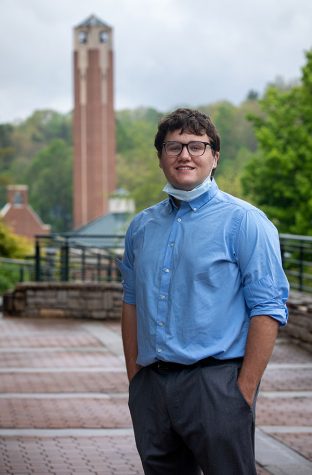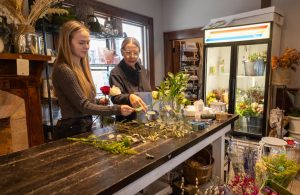Campus crime beyond the surface: a look at App State’s Clery Log
September 27, 2019
Prior to 1990, resources for students, parents and faculty about incidents involving campus police were practically untraceable. Now, anyone can see every incident reported to App State Police on its crime log.
In 1986, Jeanne Clery was a 19-year-old student at Lehigh University who was raped and murdered in her dorm. After learning more details about campus security, her parents fought to mandate university police departments to post and report campus crimes.
Her parents’ fight led to The Clery Act, which “requires all colleges and universities who receive federal funding to share information about crime on campus and their efforts to improve campus safety, as well as inform the public of crime in or around campus. This information is made publicly accessible through the university’s annual security report,” according to the App State Police website.
App State’s own Clery Log is accessible from App State Police’s website and contains every alleged crime reported to App State Police. The log must be updated two business days after an incident occurs at the latest with the date and time the crime was reported, and the date, time and place it occurred. No information that can identify the victim is reported on the log.
Andy Stephenson, chief of police and director of public safety, is familiar with the requirements of the log.
If a report is deemed by the chief of police or their designee that there is an ongoing threat to campus, a safety alert is issued to the campus community. Criteria for safety alerts include if the perpetrator has not been apprehended, there is a risk to the physical safety of members of the campus community and if a crime represents a pattern that has occured two or more times within a specific area.
After a crime is reported to App State Police, like any other police department, an investigation takes place.
“Some of the crimes reported to us or some of the crimes witnessed by us are closed immediately by an arrest or a dean of students office referral, student conduct referral. Others are more lengthy,” Stephenson said. “A report could be from a third party who knows very little of the facts of the case. There’s all kinds of things that go with investigating a crime.”
Stephenson said a victim can decide not to press charges at anytime during an investigation, unless there is a threat to campus.
Stephenson said he wants App State students to “have faith” in his department, as he often hears rumors that alarming things are happening on campus, when in fact, they aren’t.
“If there was a situation that is a threat to others on campus, we will make a notification. You will be informed. Don’t believe rumors that you hear,” Stephenson said.
While App State Police investigates the reported crimes, the Office of the Dean of Students also steps in to help those involved.
Ellen Grulke, interim director of case management, said the Office of the Dean of Students helps students navigate problems ranging from physical and mental health to academic concerns and interpersonal violence. The office also walks students through university processes like withdrawal.
Through App State Police, Grulke said her office is often called when a report is brought to the police during business hours.
“If the student gives them permission, they’re actually calling us in the moment to say, ‘Hey, are you available to meet with the student?’ and 99% of the time, we will have somebody meeting with that student from our office,” Grulke said.
If a report is filed outside of business hours, students are referred to the after-hours counseling service.
Grulke said if something is reported directly to her office, they won’t go to the police unless the student asks or there is a safety concern.
“I think a lot of times students are like, ‘Well, are you going to call police?’ And no, we’re not going to do that unless they want us to,” Grulke said.
Stephenson said given his past experiences, he believes departments at App State do a great job of working together getting resources to people in the App State community who need them.
“Appalachian really does an incredible job of bringing all those pieces together and communicating and helping everyone who they learn is in need of assistance,” Stephenson said.













